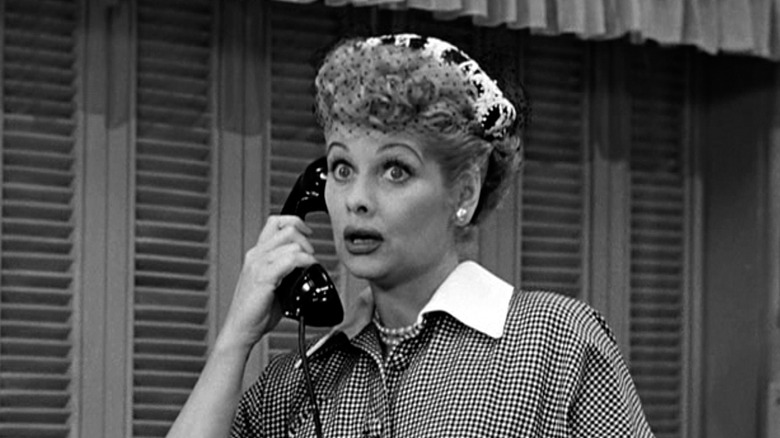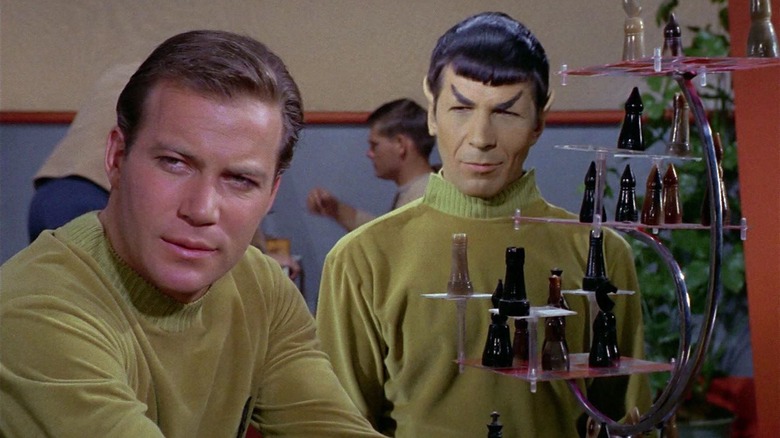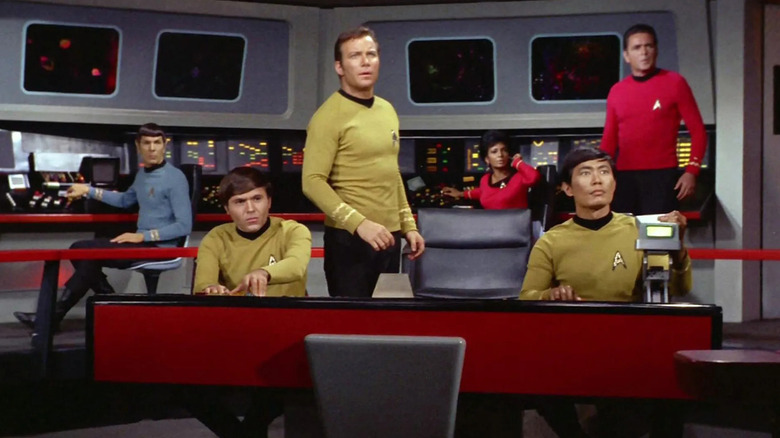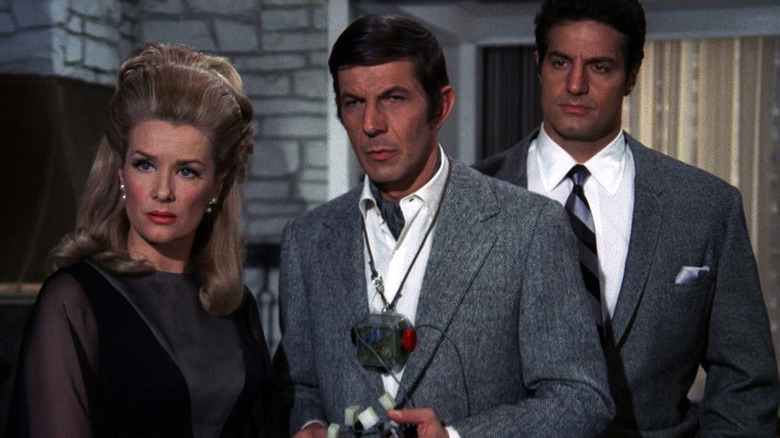How Lucille Ball Saved Star Trek From Cancellation
While many people remember actor, comedian, producer, and studio executive Lucille Ball for her time playing wacky housewife Lucy Ricardo on the classic CBS sitcom "I Love Lucy," she also played a massive role in shaping the future of television behind-the-scenes. Along with her then-husband, Desi Arnaz, Lucille Ball created the television production company Desilu, which would produce a number of shows throughout the 1950s and 1960s, including "I Love Lucy," "The Untouchables," "Mission: Impossible," "The Lucy Show," "Star Trek," and "Westinghouse Desilu Playhouse," which had an episode that ended up serving as the pilot episode of the TV classic "The Twilight Zone." Many of the shows were developed under Ball's guidance alone, as she and Arnaz divorced in 1960 and in 1962 she bought him out and became sole .
During her tenure as president of Desilu, Lucille Ball championed "Star Trek" time and again. She a reshoot of the controversial pilot so that NBC might reconsider not picking up the series, and even ended up eventually selling the company in part in order to try and ensure the series' continuation after budgets had exceeded her studio's financial capabilities. Without the dedication of Lucille Ball, sitcom legend and TV production innovator, "Star Trek" probably never would have existed.
Lucille Ball believed in Star Trek's potential
According to stories told by writer Marc Cushman in "The Fifty-Year Mission: The Complete, Uncensored, Unauthorized Oral History of Star Trek: The First 25 Years," edited by Mark A. Altman and Edward Gross, Lucille Ball really believed in "Star Trek" and did her best to get it on the air and keep it there. He elaborated:
"Lucille Ball lost her studio because of 'Star Trek.' She had gambled on the show, and you can read the memos where her board of directors is saying, 'Don't do this show, it's going to kill us.' But she believed in it. She moved forward with it, and during the second season, she had to sell Desilu to Paramount Pictures."
While there was probably plenty of disagreement among the board of directors surrounding the financial feasibility of "Star Trek," it wasn't the only series losing Desilu money, and in the 1960s, shows often had to lose money to begin with in order to establish themselves. What's known for certain is that Ball sold Desilu to Gulf & Western Industries in 1967 in a move that would impact the world of television production forever. Not only would "Star Trek" get to continue, but it would be among the first shows under the new Paramount Television banner.
Star Trek's high costs led to Lucille Ball selling the studio
Cushman went on to explain that while Lucille Ball wanted to continue to make "Star Trek" under Desilu, she just couldn't afford to do so, saying that her "instincts were right about 'Star Trek,' that it would become one of the biggest shows in syndication ever. The problem was that her pockets weren't deep enough. They were losing $15,000 an episode, which would be like $500,000 per episode today." There's just one thing: Cushman's math is off and his numbers are, too. According to financial reports from Desilu at the time, "Star Trek" was actually losing them more than $28,000 per episode, while "Mannix" somehow lost a whopping $32,000 per episode. So maybe it wasn't entirely "Star Trek" that led to the sale, but it had to contribute.
Desilu was actually in good financial shape when she decided to sell Desilu to Gulf & Western for $17 million in company stock, with the most net revenue reported to shareholders , but it's likely that she (and the board) saw the writing on the wall for these big-budget genre shows. The newly formed Paramount TV division would be a good home for shows like "Star Trek" and "Mission: Impossible" because they were already much more cinematic than their television peers, and in the end it would work out incredibly well for almost everyone involved.
Lucille Ball's sacrifice saved Star Trek (and several other shows)
Regardless of the level of Lucille Ball's personal investment in "Star Trek" and "Mission Impossible," she was the president of Desilu and therefore the one with the most power to make or break the shows. When she eventually sold the company it meant letting go of the very last piece of her time with her ex-husband, for better or worse, which could have been a pretty big sacrifice. It's not easy to leave behind something you built, especially if there were early fond memories to go with it.
Both "Star Trek" and "Mission: Impossible" are still a part of the Paramount machine and have become massive franchises with spin-off shows and a whole slew of movies, something that might have been harder to accomplish under Desilu. Paramount has gone through plenty of its own sales, mergers, and corporate malarky over the years and is currently trying to sell to Skydance even at the cost of its long-running "Late Show," so here's hoping that these franchises continue to survive and thrive after the change, just like they did almost 60 years before.



